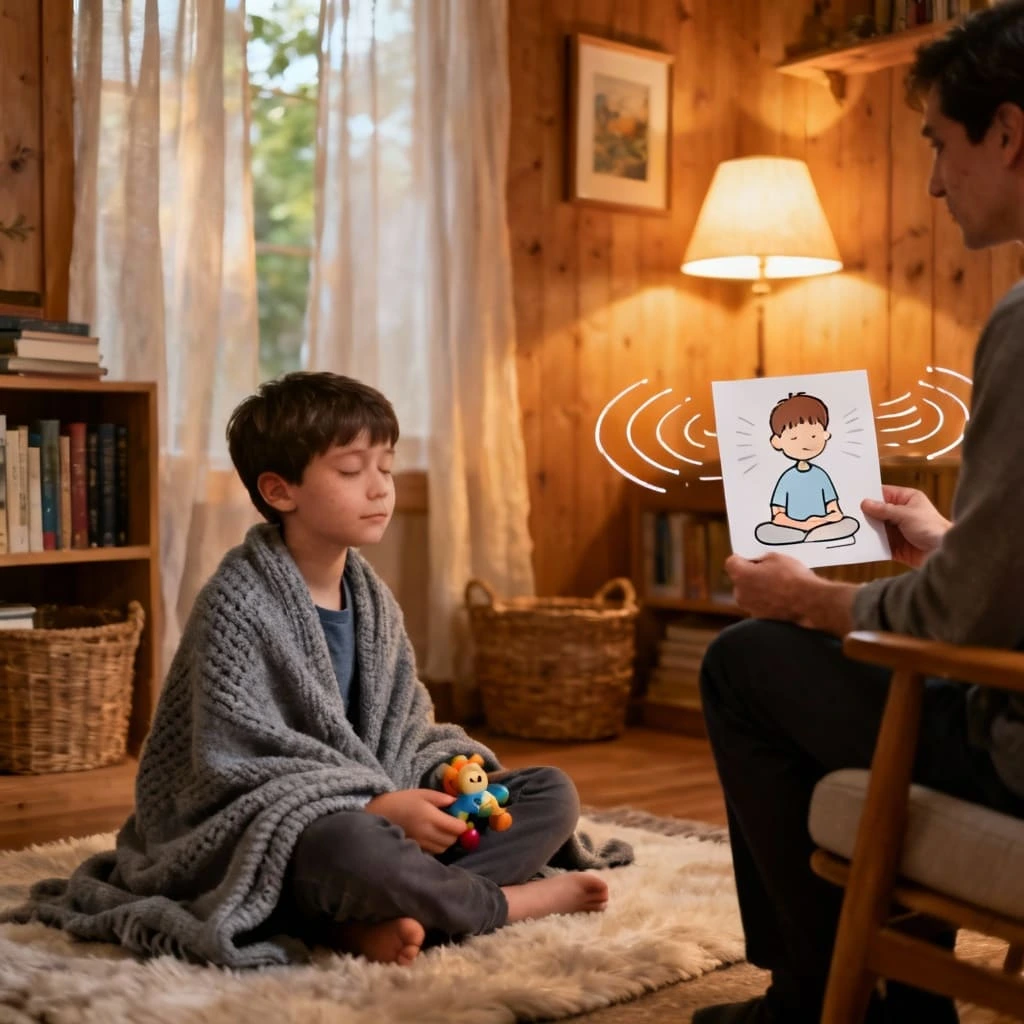Challenging Behaviour in Children
Challenging behaviour in children often refers to a range of behaviours that may cause harm to the child or those around them. This includes shouting and hitting as well as self-injurious behaviour. Behaviours that challenge are a form of communication and often result from children having unmet needs or being unable to express them.
Some of the factors that can lead to behaviours of concern include:
- Changes in routines
- Changes in environment
- Physical pain
- Sensory overload
- Changes in family dynamics
- Feeling hungry or tired
- Mental health challenges
All children can display behaviours of concern. However, autistic children and children living with a learning disability may frequently exhibit these behaviours due to difficulties communicating their needs and using them to express frustration.
Supporting children to overcome these challenges is essential for their emotional well-being and equipping them with tools to manage emotions effectively. Encouragement and guidance play a significant role in encouraging children to react and respond positively to different situations. Proactive strategies have been known to reduce or even prevent challenging behaviors simply by focusing on people’s strengths and always putting people first.
Benefits of Proactive Approaches
Following a proactive approach for challenging behaviour is crucial in helping children improve their communication skills and well-being. It offers many benefits, such as building upon existing abilities and strengths and fostering confidence.

Implementing proactive strategies is known to bring long-term improvements in the quality of life for children who exhibit behaviours that challenge. The support teams, who play a crucial role in implementing this proactive approach, are dedicated, compassionate and patient. Their role is vital in identifying the best approach for each child and making sure the care plan is personalised to their specific needs. Being consistent is crucial in achieving positive behaviours, improving well-being and helping children understand the world and other people around them.
Prevention Rather than Reaction
Proactive strategies focus on prevention rather than reaction. Reactive strategies usually involve immediate response to behaviour and emotions, ensuring the child and people around them are safe. However, proactive strategies equip children with skills and coping mechanisms to handle emotions or crises, helping them be prepared and avoid behaviours that challenge.
Primary preventive strategies can be a powerful tool in preventing challenging behaviours as they focus on helping children obtain their needs, create supportive environments, and eliminate restrictive practices. Secondary prevention also focuses on supporting children when they feel agitated or distressed by teaching them techniques such as redirection, relaxation and problem-solving.
However, in cases where primary or secondary prevention strategies haven’t been effective, reactive strategies may be necessary. In such instances, the decision to implement a reactive strategy should be made by a multi-disciplinary team, following a person-centred approach with a compassionate team of experts.
Examples of Proactive Approaches
Proactive strategies can prevent or reduce behaviours that challenge. These approaches cover a range of strategies that can promote positive behaviour and support well-being. For instance, visual supports may help children better understand expectations and follow instructions, leading to more positive outcomes.
Providing choices can empower children and promote their independence while offering descriptive praise can encourage positive behaviours. Consistent routines can significantly impact behaviour and offer children tools to communicate their needs.
Positive Behaviour Support (PBS)
Positive Behaviour Support (PBS) is a person-centred approach utilised by caregivers, healthcare professionals and family members to encourage and teach children new behaviours and skills. This approach effectively reduces the emergence of challenging behavior by understanding and eliminating triggers. It also facilitates learning new skills to develop healthy behaviours and communicate needs, replacing challenging behaviour.
The foundation of PBS lies in gaining extensive knowledge about each child, including their needs, strengths, and desires. It offers a tailored support system that can improve the quality of life for children and promote wellness and success. Our in-house therapy team, with their expertise in developing PBS strategies and care plans, ensures the best possible outcomes for the children they support.
Positive Reinforcement
Positive reinforcement is a crucial strategy that involves providing praise, a positive action or a reward right after a desired behaviour, which can increase the chances of that behaviour occurring again. It is essential to reward positive behaviour often while instilling clear rules and involving the child in the rule-making process, helping them understand expectations and feel included.

Environmental Modifications
Environmental modifications are also beneficial in creating a supportive environment. Tools like visual schedules and choice boards can display activities and rewards and help children navigate their routines. Some children can immensely benefit from sensory rooms that can help calm their behaviours of distress. Implementing environmental modifications means that caregivers, educators and family members can create a safe space for children where they will maximise their well-being and learning potential.
Effective Communication Strategies
Effective communication strategies are crucial in supporting children to express their wants and needs effectively. Tools like symbols, charts, photographs or apps can improve their communication skills. Children with communication difficulties often feel frustrated and exhibit behaviours that challenge as a response. In these situations, responding calmly and offering an alternative communication method is important for reaching a positive outcome. It’s crucial to tailor approaches to each child’s specific needs and find solutions that improve their well-being while helping them express their needs.
Social Skills Training
Social skills training, or SST, is a form of behavioural therapy designed to enhance social skills. Therapists and other health professionals often utilise this evidence-based approach to support children by equipping them with practical tools to improve their social interactions.
The training focuses on developing essential skills like listening, conflict resolution, empathy and effective communication. Some methods used include role-playing scenarios, targeted exercises and real-life practice. SST offers a structured environment essential for learning and growth, which can help children build meaningful connections, improve their overall well-being and enhance self-esteem.
The Key to Successful Implementation of Proactive Approaches
A person-centred, compassionate approach makes a significant difference when delivering proactive strategies. Humanised care involves understanding and responding to every child’s unique needs, experiences and emotions and requires recognising their strengths and abilities to tailor a proactive approach accordingly. Trust and safety are established when family members, caregivers, and health professionals approach children with genuine care, empathy and compassion. This connection can lead to effective communication and collaboration for a long-term result.
Humanised care also means actively listening and validating emotions while providing support with respect and dignity. At Unique Community Services, we implement proactive strategies that create a supportive environment that nurtures people’s well-being and unique needs. Our proactive approach truly comes to life through person-centred care and makes a lasting impact on the people we serve.
Implementation of Proactive Approaches with Unique Community Services
Unique Community Services is committed to providing person-centred care and proactive approaches. We understand that every person has unique needs, so our approaches are centred around providing humanised care that fosters positive outcomes.
Our trained and compassionate support workers and in-house therapy team work alongside families and other healthcare professionals to develop a personalised care plan that addresses every person’s specific challenges and needs.
With offices in Manchester and Leeds, Unique Community Services is always within reach. If you’re seeking a care provider dedicated to proactive approaches, contact us today.

